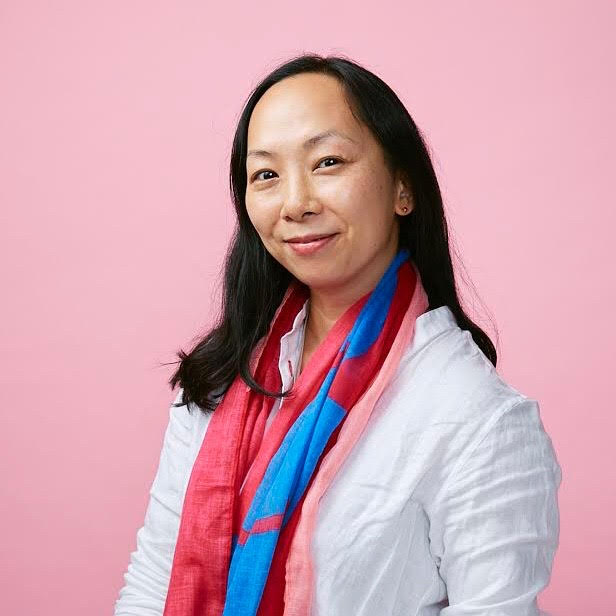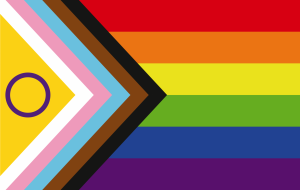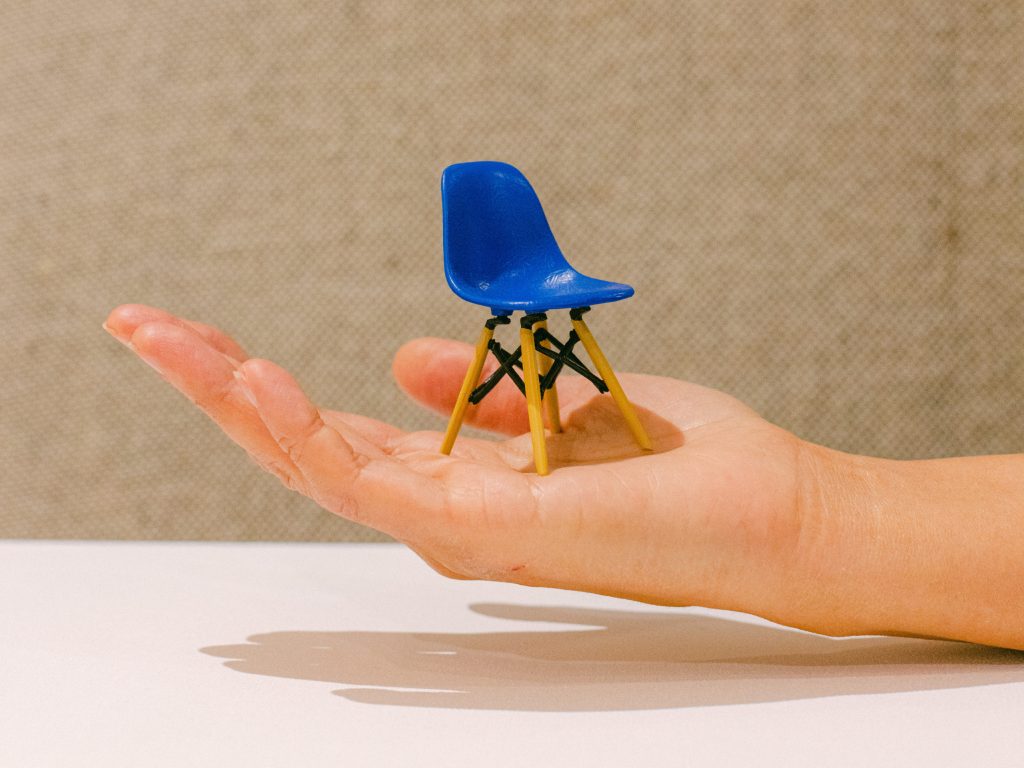Fresh Grief? 5 Things to Know
What do you do after someone dies? In the weeks or months after a loss, there can be a lot to handle, practically and emotionally. Here are top tips from grief coach Charlene Lam, from grief’s “timeline” to getting grief support.
If you’ve lost a loved one, a friend, a family member. I’m sending you so much love.
Here are a couple of things that I would like you to know if you’ve lost someone fairly recently — and “recent” can mean anything from 2 weeks to 2 years! (Grief time is not like normal time.)
1. Grief includes a range of emotions. Whatever you’re feeling right now and whatever you’re going to be feeling is perfectly fine. It’s normal.
Whether it is anger, whether it is regret, whether it’s guilt, sadness or nothing at all … all of it is a normal response to loss. There isn’t one emotion that’s associated with grief.
You are NOT doing it wrong, if you’re not feeling sad “enough” or on the other hand, because you’re feeling too much! It’s all normal, and your emotions might change from day to day and from moment to moment. Try not to judge your emotions. Don’t judge how you’re doing. Whatever you’re feeling is perfectly fine.
2. Grief has no set timeline. Emotions can change from moment to moment, day to day.
We’ve all heard about the 5 Stages of Grief, right? But that’s a really outdated model and poorly understood. It wasn’t meant to be a step-by-step linear process. It wasn’t designed to apply to grief after the death of a loved one. (Elisabeth Kübler-Ross was studying individuals facing their own deaths.)
For some people, having the idea of stages can be comforting and if that’s you, that’s great!
Grief is Not Linear
But we do want to challenge the idea that there are linear stages, and that at some point, we’re done and then we graduate from grief! That’s just not how it works.
Yes, your grief is going to change over time and it’s going to change over the years, but there are no set stages and you might feel different things at different times. Anniversaries and significant dates might bring up different emotions.
You might be surprised by your emotions — often.
F* Your Rainbows and the Weather Analogy
There is no set timeline for grief. Plus there’s what I call the F* Your Rainbows factor (here’s an Instagram graphic that illustrates it).
A lot of grief advice or things that people say come from a good place — and hopefully good intentions — but they can be really clumsy.
People are often talking about grief or losses that they’ve experienced when they are further down the line. They have had more time and space to process.
When you’ve just experienced a significant loss, it may feel like you’re still in the storm or in the immediate aftermath. You are in survival mode.
People speaking after their own storm might say things like, look at the Rainbows and the Silver Linings. And some of that can come off as really insensitive and really clumsy.
I think of it this way: They don’t remember what it’s like to be in the storm of a recent loss, in that “stage” or phase of “acute grief” or early grief where the loss is very fresh and the pain very raw.
When you’re in the midst of the storm, you likely don’t want to hear about rainbows or silver linings or “at least your loved one didn’t suffer” or “at least they lived a good life” — anything that starts with “at least” for sure.
So people might offer Rainbows and they might offer Silver Linings, and you might not be ready to hear it. And that is totally fine.
When you are in the midst of the storm, you are just trying to survive.
I will offer that at some point, there is the possibility for rainbows. For me, personally, I found it helpful to think that at some point, I would be able to see Silver Linings, I would feel like there were more sunny days than dark days.
So if that’s you, if that analogy feels comforting to you, please do feel free to use it. But don’t feel like you have to embrace those Silver Linings or the Rainbows that people might offer.
3. You might experience a range of emotions when grieving. Here are options for dealing with them.
There are a couple of ways that you can respond when you have an emotion.
One, you can allow the emotion, you can just let it be. You can just feel it.
Two, you can resist the emotion, where you try to pretend it’s not there. You try to push it down, you don’t want to accept it.
Three, you can react to the emotion. Maybe that looks like sadness you want to drown in alcohol. Maybe in anger you lash out at someone.
We can’t always control it, but if we’re to look at the range of options for when you have an emotion — whether it’s to allow it, to resist it, or to react to it or react from it — I would suggest seeing if you can allow the emotion.
In the moment, deep sadness, anger, guilt, shame — they all feel terrible. But if we can just allow it and let it process through our body, work through it with a therapist or grief coach, work through it with movement (whatever makes sense for you), I think that can be a healthy way to hold those emotions that are going to be coming up.
4. When dealing with grief and loss, consider OPP — Other People’s Processes
Do you remember that song OPP by Naughty by Nature? OPP stands for different things but in this instance, I’m going to say that OPP stands for Other People’s Processes.
Different people do definitely grieve in different ways. Different people have varying capacities for handling emotions and scenarios.
Especially when a close family member or a loved one dies, it brings up a whole range of reactions and emotions.
These differences in emotions, reactions and expressions can be a big source of conflict after someone dies, because people are going to respond differently. People are going to have different expectations.
You might be surprised by people’s responses to loss.
These are influenced by a number of things:
One, the relationship that you had with a person will affect your experience with grief. Your relationship with the person is going to be very personal (seems obvious). How you feel and how you think about that person is really going to affect how you feel about their loss. The relationship that someone else had with that person might be very different.
People tend to have default or preferred styles of processing grief.
There are also a range of ways in which people naturally process their emotions and how they process grief. So for instance, there are cognitive processors: People who want to think about things, want to analyze them, want to make sense of it all.
And there are people who might tend toward emotional processing. They want to cry, they want to yell, they really want to talk about their feelings and express their feelings.
It’s not binary. But sometimes there can be a tendency toward one over the other. I am much more of a cognitive processor: Show me all the grief theory! Let me do all the research. Give me a checklist.
Whereas, other people in my family were much more emotional processors after my mother died.
-
It took a while to recognize that we had these different ways of processing.
-
It took grace to let it be okay that we did have these different styles and not to expect other people to process in the way that I expected them to.
-
It took effort to not take it too personally when people implied that I wasn’t expressing or processing my grief in the way THEY thought was right.
So let other people’s processes (OPP) be their own and embrace what feels good to you.
5. Build your grief support system.
Don’t be afraid to lean on people for practical or emotional support. There is a lot that can come up in terms of responsibilities, depending on your relationship with the person and whether you’re officially in charge of the estate or unofficially the default person who takes care of things.
So lean on all the help that you can get. There are a lot more services and resources now, which is really exciting. There are startups out there that can help you with taking care of paperwork, with calling to cancel accounts and dealing with all those estate matters. My grief resources page has a list of some of those options for practical support and emotional support after loss.
Your Support System Might Look Different Than You’d Expect
You might be surprised by who is part of your support system after you lose a loved one. I was pretty surprised it wasn’t necessarily my closest friends. It wasn’t necessarily the family members that I thought would be my biggest supports. I got in touch with cousins who I hadn’t necessarily been that close to or talked to that much, but they were such an important source of support after my mom died.
You might need to see who responds to you in the way that you need it.
-
Sometimes I needed co-workers who would help distract me from all the things that were going on after my mother died.
-
There were friends who had experienced the loss of their parents who could speak about it and share their experience. That was really valuable for me as a form of emotional support, to validate my experience, to hear what they did and what they experienced.
-
In terms of practical and emotional support, I identified that I needed people who were kind and competent to help me deal with things like my mother’s house.
-
If you can name and identify some of the ways that would be helpful to you in the coming months and in the coming years, reach out to those people. Don’t be afraid to ask for help, don’t be afraid to lean on people.
You might want to go beyond family and friends.
-
Community: Having people that you can talk to who know, somewhat, what you’re experiencing, can be really helpful. In my case, I was lucky enough to have friends and people in my network who had experienced parental loss and who were willing to talk about it. Other people don’t necessarily have that but there are a whole range of support groups out there now, whether it’s in the form of Instagram posts or actual support groups that meet on Zoom, that talk about various kinds of loss.
-
Professional help: There’s a spectrum of care available for grief support. For some people, community support from friends, family, church members or support groups is adequate. Others may opt for professional support from a grief counselor, therapist or psychologist, and/or when they’re ready, a grief coach. Medication and working with a psychiatrist is also an option. All of these are valid options, in my opinion.
Create that support network. Lean into it. Take amazing care of yourself.
When you lose someone, that is a massive experience. It takes our human brains quite a while to catch up: How is this possible? What does it mean?
Take it slowly. Give your brain time to catch up. Your body is going to really feel it as well, so be very gentle with yourself.
Sending lots of love to you. And when you’re ready, get in touch for more grief resources:
– Join my monthly group gathering for The Grief Gallery. It’s free on Zoom and it’s the last Wednesday of every month.
– If you feel like you would benefit from grief coaching and one-to-one support, you can find out more about working with me and book a complimentary consult.
Get all the support that you can. You deserve it. Healing takes time and it takes help. Don’t be afraid to ask for it. Take care.
hello
I'm Charlene
I help grieving people feeling burdened by responsibilities, resentments and regrets after the death of a loved one to feel lighter –– so you can live your own fullest life.
After the sudden death of my mother Marilyn in 2013, I put my life, work and grief on hold as I struggled to deal with the estate, paperwork and belongings.
Healing took time -- and it took help.
I'm a certified grief coach, and I developed my Curating Grief framework to help people process grief in a creative, accessible way. Learn how to move forward, without leaving your connection to your loved one behind.

Get In Touch
- hello@charlenelam.com
CONTACT
- hello@charlenelam.com
CONNECT
YOU ARE ALL WELCOME

WORK WITH ME
GRIEF COACHING
MEET ME IN LISBON
SPEAKING AND WORKSHOPS
MONTHLY GRIEF GATHERING
Join us for The Grief Gallery's free, supportive grief group gathering the last Wednesday of the month, 2pm ET (7pm UK).
CURATING GRIEF PODCAST
- Listen to the Curating Grief podcast
GRIEF RESOURCES
Need help with grief? I can help.
Get in touch: Email hello [at] charlenelam.com
Note: Coaching and coaching consultations are not a substitute for counseling, psychotherapy, psychoanalysis, mental health care, substance abuse treatment, or other professional advice by legal, medical or other qualified professionals. If you are experiencing a mental health emergency, contact 911 or your local emergency services.
Copyright © 2023 Charlene Lam. Curating Grief ™ and The Grief Gallery ™. All Rights Reserved | Terms of Use | Privacy Policy

